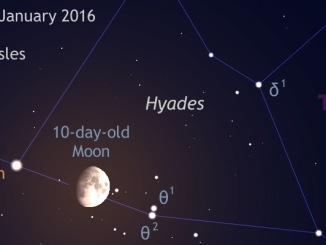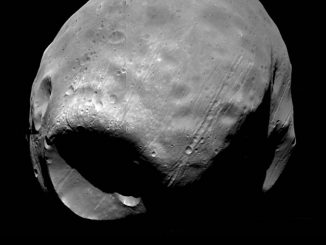
If you have a clear sky low to the west close to 7:30 pm GMT (an hour after sunset for the centre of the British Isles) you’ll see the pair separated by just under 4°, so they’ll both fit in the same binocular field of view.
As dusk descends to dark in the UK, the Moon lies about 226,100 miles (363,900 kilometres) away, while Venus is 117.5 million miles (189.1 million kilometres) distant. In other words, Venus is over 500 times further away than the Moon tonight.
Despite being 3.5 times the physical diameter of our Moon, planet Venus will appear as a tiny 13.2-arcsecond gibbous disc in a telescope tonight, requiring a magnification of 150x to make it appear the same size as the Moon does to the naked eye.
Observers with a particularly clear sky seeking a challenge may also wish to find magnitude 1.3 planet Mars with binoculars in the dusk twilight, just 11° (the width of a fist at arm’s length) to the lower right of the Moon.
Clear skies!
Inside the magazine
Find out more about what’s up in the night sky every month in Astronomy Now the UK’s biggest and longest running astronomy magazine.
Never miss an issue by subscribing. Also available for iPad/iPhone and Android devices.




